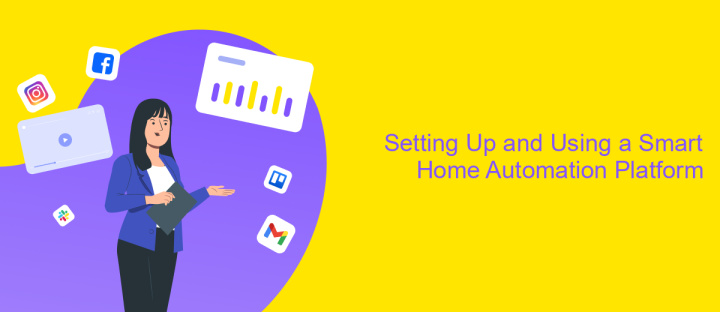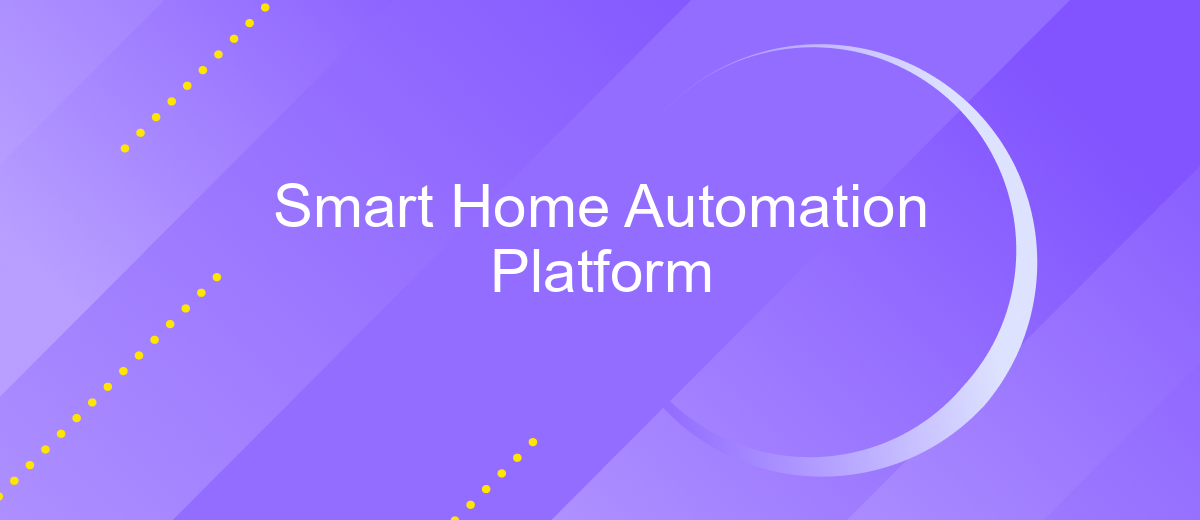Smart Home Automation Platform
In today's fast-paced world, smart home automation platforms are revolutionizing the way we interact with our living spaces. These cutting-edge systems seamlessly integrate various devices, enhancing convenience, security, and energy efficiency. With just a few taps on your smartphone, you can control lighting, climate, entertainment, and more. Discover how these innovative technologies are transforming homes into intelligent, responsive environments tailored to your lifestyle.
Introduction to Smart Home Automation Platforms
Smart home automation platforms have revolutionized the way we interact with our living spaces, providing seamless integration of various devices and systems for enhanced comfort, security, and energy efficiency. These platforms serve as the central hub, allowing users to control lighting, climate, entertainment, and security systems through a single interface, often accessible via smartphones or voice commands. As technology advances, these platforms continue to evolve, offering more sophisticated features and greater compatibility with a wide range of smart devices.
- Centralized control of multiple smart devices
- Remote access and monitoring capabilities
- Energy management and efficiency tracking
- Enhanced security features and automation
- Customizable scenes and routines for daily convenience
The adoption of smart home automation platforms is driven by the desire for convenience, efficiency, and enhanced quality of life. As more people embrace smart technology, these platforms are becoming increasingly user-friendly and accessible, catering to a diverse range of needs and preferences. By integrating various smart devices into a cohesive ecosystem, users can enjoy a more connected and intuitive living environment that adapts to their lifestyle. The future of smart home automation promises even greater innovations, making our homes smarter and more responsive than ever before.
Key Features and Benefits

Smart Home Automation Platforms offer a seamless integration of devices, providing users with a centralized control hub for all smart home gadgets. These platforms support a wide range of devices, ensuring compatibility and flexibility for users to customize their smart environments. With intuitive user interfaces, homeowners can easily monitor and manage lighting, security, climate, and entertainment systems from a single app. The platforms often feature voice control capabilities, allowing hands-free operation through popular voice assistants like Alexa, Google Assistant, or Siri.
One of the key benefits is the enhanced energy efficiency achieved through automation. Users can set schedules and routines to optimize energy usage, reducing costs and environmental impact. Additionally, platforms like ApiX-Drive facilitate seamless integration between various smart devices and services, streamlining the automation process. ApiX-Drive enables users to connect and automate workflows without requiring extensive technical knowledge, making smart home management accessible to everyone. With robust security features, these platforms ensure data privacy and protection, giving users peace of mind as they enjoy the convenience and efficiency of a fully automated home.
Choosing the Right Platform for Your Needs

When selecting a smart home automation platform, it's essential to consider several factors to ensure it aligns with your lifestyle and needs. The right platform can enhance convenience, security, and energy efficiency in your home, so making an informed choice is crucial.
- Compatibility: Ensure the platform is compatible with your existing devices and future purchases.
- Ease of Use: Look for a user-friendly interface that simplifies setup and daily use.
- Scalability: Choose a platform that allows for easy expansion as your needs grow.
- Security: Prioritize platforms with robust security features to protect your data and devices.
- Support and Updates: Opt for a platform with reliable customer support and regular software updates.
By carefully evaluating these aspects, you can select a smart home automation platform that not only meets your current needs but also adapts to future technological advancements. This thoughtful approach ensures your home remains a seamless and efficient environment for years to come.
Setting Up and Using a Smart Home Automation Platform

Setting up a smart home automation platform begins with selecting a compatible hub that connects all your smart devices. Ensure the hub supports the devices you plan to use, such as lights, thermostats, and security cameras. Once you have your hub, follow the manufacturer's instructions for installation, which typically involves connecting it to your Wi-Fi network and downloading the corresponding app on your smartphone.
After installing the hub, add your smart devices to the platform. This process usually involves placing the devices in pairing mode and using the app to discover and connect them. Make sure each device is within range of the hub to ensure a stable connection.
- Download and install the smart home app on your phone.
- Connect the hub to your Wi-Fi network.
- Add and pair each smart device through the app.
- Create automation rules and schedules for device operation.
Using a smart home automation platform allows you to control and monitor your devices remotely. Customize automation rules to suit your lifestyle, such as setting lights to turn on at sunset or adjusting the thermostat based on your schedule. Regularly update your app and devices to ensure security and optimal performance.


Future Trends in Smart Home Automation
As the smart home automation industry continues to evolve, several key trends are shaping its future. One prominent trend is the integration of artificial intelligence (AI) and machine learning into smart home systems. These technologies enable devices to learn user preferences and behaviors, allowing for more personalized and efficient automation. For instance, AI-driven systems can optimize energy usage by adjusting lighting and temperature based on occupancy and time of day, contributing to both convenience and sustainability.
Another significant trend is the growing emphasis on interoperability among smart devices. As consumers adopt a variety of smart products, the demand for seamless integration increases. Platforms like ApiX-Drive play a crucial role in this landscape by facilitating the connection between different systems and services. By providing a user-friendly interface for setting up integrations, ApiX-Drive enables homeowners to create a cohesive smart home ecosystem without technical expertise. As smart home technology advances, the focus will continue to be on creating more intuitive, secure, and interconnected environments that enhance the quality of life.
FAQ
What is a Smart Home Automation Platform?
How do I set up a Smart Home Automation Platform?
Can I integrate different brands of smart devices with a single platform?
How secure is a Smart Home Automation Platform?
How can I automate tasks and create integrations between devices?
Apix-Drive is a universal tool that will quickly streamline any workflow, freeing you from routine and possible financial losses. Try ApiX-Drive in action and see how useful it is for you personally. In the meantime, when you are setting up connections between systems, think about where you are investing your free time, because now you will have much more of it.

